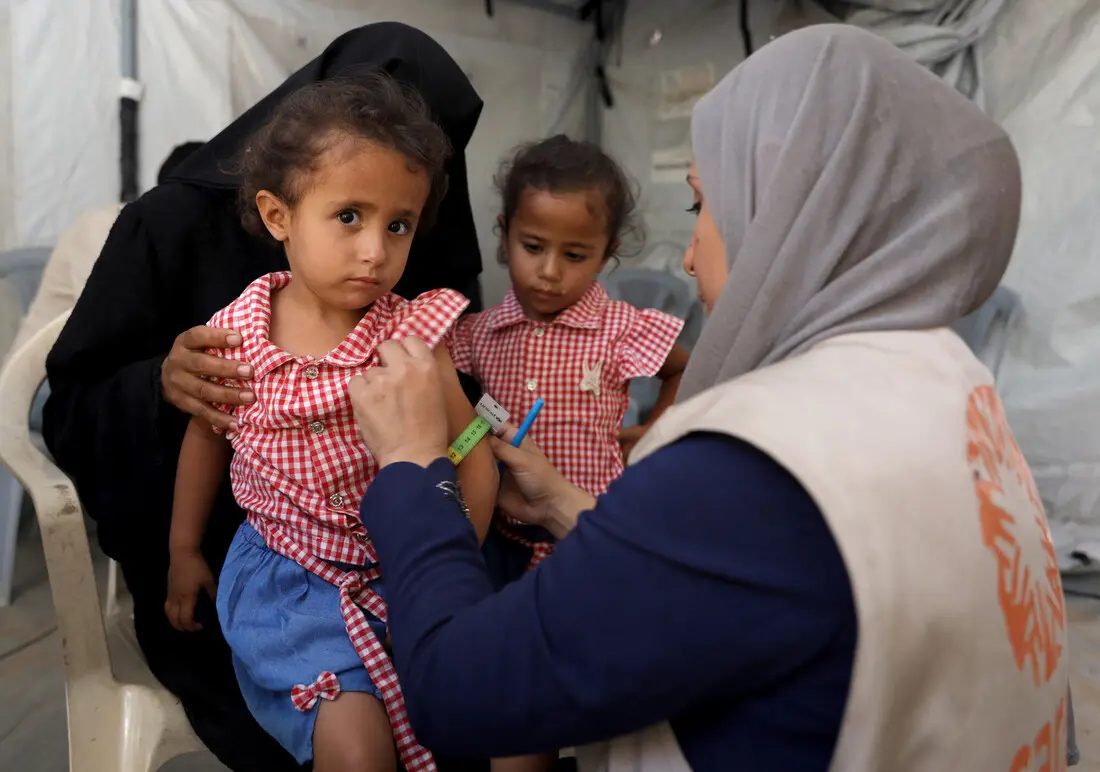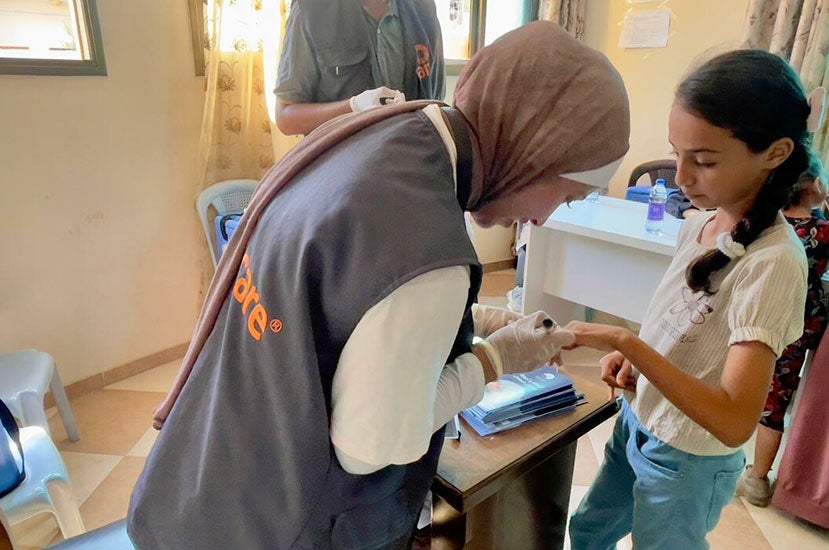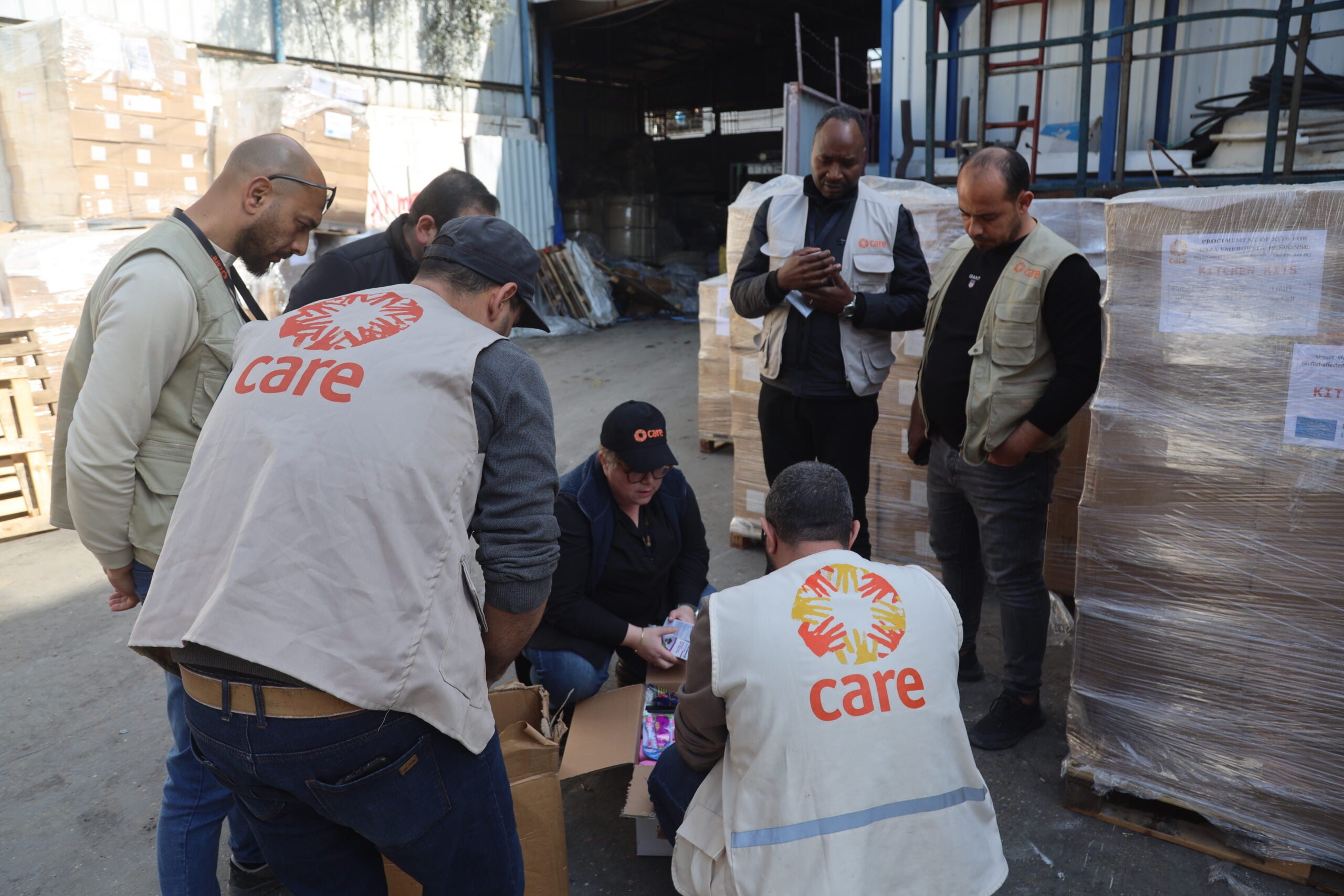How to help West Bank/Gaza – What CARE is doing
CARE has been responding to this emergency since it began. In fact, CARE was one of the first international organizations to respond, distributing prepositioned water and medical supplies. To date, CARE has reached nearly 1 million people in Gaza and 180,000 people in West Bank with humanitarian assistance.
CARE is working in the following areas:
Health: CARE opened a primary healthcare center in Deir Al-Balah in July 2024. The clinic provides prenatal and postnatal care, women’s reproductive health services, nutrition for children under five years, primary health for communicable and non-communicable diseases, psychological support, and primary care medications. The clinic also served as one of the polio vaccination sites in partnership with WHO and UNICEF, helping to immunize thousands of children.
Water, sanitation, and hygiene (WASH): Distributing bottled water and hygiene supplies, trucking water to displacement sites and collective IDP centers, installing emergency latrines and support for solid waste management, and raising awareness around proper hygiene practices.
Women and girls: Distributing dignity kits and working with other humanitarian actors to ensure that protection for women and girls is integrated into the wider humanitarian strategy.
Shelter: Providing basic shelter materials like bedding, kitchen sets, tents, and tarps to help families rebuild their homes – either directly or through cash assistance for building repairs or rent.
Food security and livelihoods: Providing food baskets, cash assistance, and individual food rations, depending on access and market availability.
Speaking out: CARE reiterates its call for an immediate and sustained ceasefire, the free flow of humanitarian aid into and across Gaza, the evacuation of the sick and wounded, and the release of all hostages.
We need your help to provide lifesaving assistance to the people affected by this devastating conflict. With your support, we can help meet urgent humanitarian needs.
CARE has worked in Gaza since 1948, and we have trusted and well-established local partnerships across the region.


